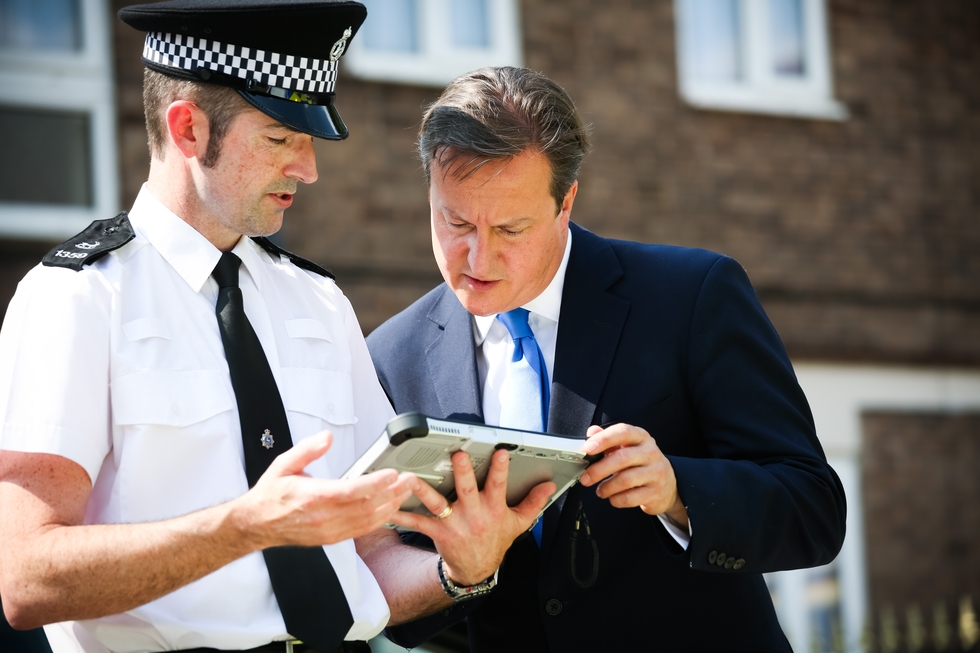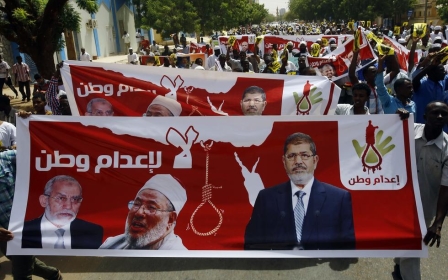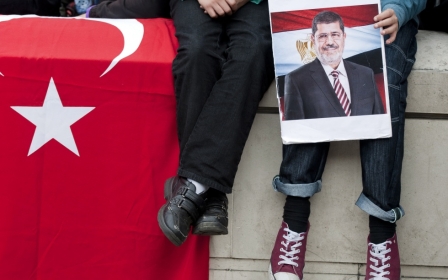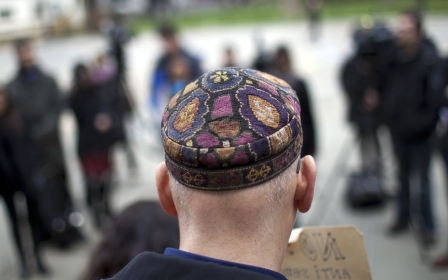UK intelligence had warned against 'fruitless' probe of Muslim Brotherhood

LONDON - British intelligence warned Prime Minister David Cameron against ordering his review into links between the Muslim Brotherhood and terrorism, the Middle East Eye can disclose.
MEE understands that a senior official from MI5, the domestic intelligence service, personally warned the prime minister that the review, which was concluded last summer, would prove fruitless.
MI5 was also concerned that launching a review into the Brotherhood risked damaging relations with elements in the British Muslim community, whom they have used in the past to oust Salafi Jihadis from mosques in Britain.
But David Cameron, who came under huge pressure from the United Arab Emirates to launch his survey, took no notice of the advice.
The revelation comes as the government prepares to publish an edited version of the long delayed 200-page report on Thursday.
We understand that the review will not recommend that the Brotherhood be proscribed as a terrorist organisation – a conclusion that will be greeted with fury from the United Arab Emirates. Cameron was told there was no organisation or assets in Britain that belonged officially to the Muslim Brotherhood, no building with a plaque on it that served as its headquarters. The only route was to go after individuals and their bank accounts.
The Brotherhood is classified as a terrorist organisation by the UAE, which has threatened Britain that commercial contracts will be lost unless it acts against the organisation.
The review ran into trouble soon after it was launched, as MI6, under its then head Sir John Sawers, former ambassador to Egypt, cleared the Brotherhood of any links with political violence in Egypt, and in particular an attack on a tourist bus in Sinai, which killed three tourists from South Korea and an Egyptian driver. One of the five militant groups based in Sinai, Ansar Beit al-Maqdis said it carried out the bomb attack on the tourist bus, claiming it was part of its economic war against the Egyptian government which it described as traitors. The attack was denounced at the time by the Muslim Brotherhood.
However the review will argue that the Brotherhood is not a monolithic organisation, that the organisation has historically performed the role of a conduit to Takfiri or Jihadi Islam, and that "Qutbism" or the thoughts of one of its intellectual godfathers Sayyid Qutb, who advocated political violence, remains a current of the organisation’s thinking.
The review has been drafted by two highly regarded officials: Charles Farr, who has recently been appointed chairman of the Joint Intelligence Committee, and former British ambassador to Saudi Arabia Sir John Jenkins.
The decision to appoint an expert who at the time was ambassador to Saudi Arabia to head the inquiry was criticised by a former UK ambassador to Riyadh, Lord Wright of Richmond. He said in a debate in the House of Lords that the current ambassador would be in an “extremely invidious position” since the Saudi government wishes to discredit and destroy the Muslim Brotherhood. Home Office Minister Lord Taylor of Holbeach said: "This is about UK national interest and the UK government forming its own view."
When the review was announced in April 2014, the Brotherhood decided it would co-operate with it, and Sir John held a number of meetings with Brotherhood leaders in Britain and in the Middle East.
Throughout the process, the Brotherhood insisted on seeing the report before it was published, under a British legal principle established by a Department of Trade inquiry into the publisher Robert Maxwell, which gave parties criticised by a government report the right of reply.
The Brotherhood argued this was particularly important as any report linking the Middle East’s largest organisation to extremism could endanger the safety of its members, who have been imprisoned, tortured and killed in prison in Egypt and the UAE.
The publication of the report has been delayed for a year, reportedly because the prime minister was unwilling to risk a confrontation with the UAE after he learned that the report would not recommend that the Brotherhood would be proscribed.
In addition it has faced a series of legal challenges and threats of injunction to suspend publication of the report until the right to reply has been afforded to the Muslim Brotherhood. As a way round this, the government will publish the review as a motion in Parliament in an attempt to use parliamentary privilege to prevent legal action. The contents of the report may also be challenged legally.
Last month The Guardian published internal briefing documents from the UAE government which revealed that the Emiratis threatened to block billion-pound arms deals with the UK, stop inward investment and cut intelligence cooperation if David Cameron did not act against the Brotherhood.
A second set of papers from 2014 reveal that the UK’s ambassador to the UAE was warned by Khaldoon al-Mubarak, chairman of Manchester City football club, and right-hand man of the crown prince, that a "red flag" had been raised about the British government’s indifference to the Brotherhood’s operation.
Allegations of undue foreign pressure on the British government in respect of the UK review will now be investigated by the Foreign Affairs Committee.
Tayab Ali of ITN Solicitors representing the Muslim Brotherhood said: "We remain concerned that there may be errors or misconceptions in the report given what we now know of the influence of governments hostile to the Muslim Brotherhood on this review, especially since our client has not been given the opportunity to comment on the report. My client will challenge in court any unfair criticism that emanates from the report following this deeply flawed process."
Stay informed with MEE's newsletters
Sign up to get the latest alerts, insights and analysis, starting with Turkey Unpacked
Middle East Eye delivers independent and unrivalled coverage and analysis of the Middle East, North Africa and beyond. To learn more about republishing this content and the associated fees, please fill out this form. More about MEE can be found here.




